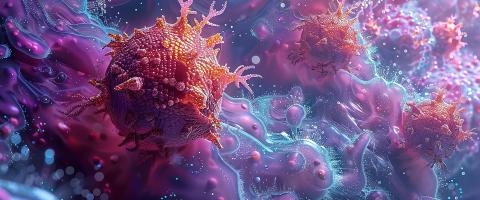
Researchers using 4 years of interim data from a large, ongoing study of mental health and brain development in American children and adolescents have found that “high” or “increasing” addictive use…
Read More

For the first time, researchers have obtained evidence establishing a potentially predictive connection between disturbances in sleep and the occurrence of depression and self-harming behaviors in…
Read More

There is new evidence in the continuing effort by researchers to probe how depression, stress, and inflammation affect the risk of suicide and suicidal behavior.
Read More

Inflammation in the body causes physical pain each day for untold millions of people, and in that respect it is a well-known and well-understood medical problem. Much less well understood is the role…
Read More

Among young people under age 18 who are diagnosed with disorders on the bipolar spectrum (BD), as many as one in two attempts suicide. Of all psychiatric diagnoses in this age group, BD is associated…
Read More


